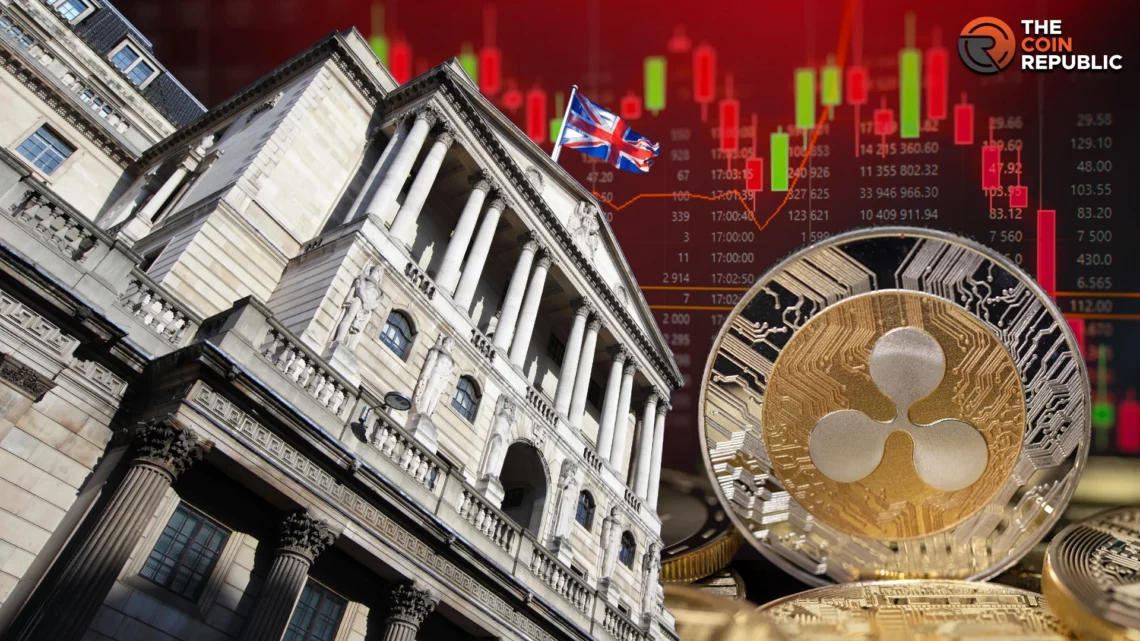The Bank of England (BOE) is attempting to remove bonds from its balance sheet, and to do that, they are sending ripples through the money markets.
Analysts have warned the central bank of England that it will soon need to stop its weekly sales of bonds by the end of this year. If they do not stop the continuous sale, future efforts to loosen the borrowing conditions will be at risk.
BOE is expected to share further guidance on the quantitative tightening after the latest meeting. The BOE is getting rid of the debt it bought during the pandemic and with this sale of bonds, the bank is absorbing excess cash from the market in the process.
Why The BOE Is Aggressively Getting Rid Of Bonds
The bank’s rate is supposed to attract overnight deposits to the highest relative to the BOE’s key rate since 2021, as per the data presented in a Bloomberg show. The show also said that the European Central Bank and Federal Reserve are at odds with the Bank of England and thus they are avoiding direct sales of the bonds for now.
Derek Halpenny, a researcher at MUFG, said in one of his podcasts that “financial conditions are tightening and liquidity conditions have the potential to create increased short-term rate volatility.” and “The shortage of cash and the potential upward pressure on rates would certainly be inconsistent with the MPC cutting rates.”
However, the actions of BOE are not concerning citizens in general, as BOE has provided prime facilities and is ready to provide cash to banks in need as the economy is focusing on the smooth functioning of the market.
Impact On Economy
The increase in the money market rate can impact financial contracts that are worth trillions of pounds. This could hinder the BOE’s efforts when it seeks to loosen economic policies.
The UK policymakers will revisit their bond-selling policy in September this year. Some of the factors that might change before the policy maker makes the change include:
Reduction in Liquidity
The Bank of England’s quantitative tightening and the early repayment of pandemic era bank loans have been reduced gradually. Thus, the spare money in the economy is the lowest since 2021.
Tightening Of Trading Spread
The sterling benchmark for unsecured lending, SONIA, has been increasing. It is tightening the spread between SONIA and BOE’s key rates. SONIA stands for sterling overnight indexed average and is an overnight rate, based on actual transactions in overnight indexed swaps for unsecured transactions in the markets supporting pound sterling. For the first time since 2021, it has fallen below 5 bps.
The recent moves are not substantial; however, in the long run, liquidity conditions can deteriorate. The BOE weekly funding facility was initially introduced to support banks that are in search of liquidity for day-to-day transactions.

Adarsh Singh is a true connoisseur of Defi and Blockchain technologies, who left his job at a “Big 4” multinational finance firm to pursue crypto and NFT trading full-time. He has a strong background in finance, with MBA from a prestigious B-school. He delves deep into these innovative fields, unraveling their intricacies. Uncovering hidden gems, be it coins, tokens or NFTs, is his expertise. NFTs drive deep interest for him, and his creative analysis of NFTs opens up engaging narratives. He strives to bring decentralized digital assets accessible to the masses.


 Home
Home News
News









